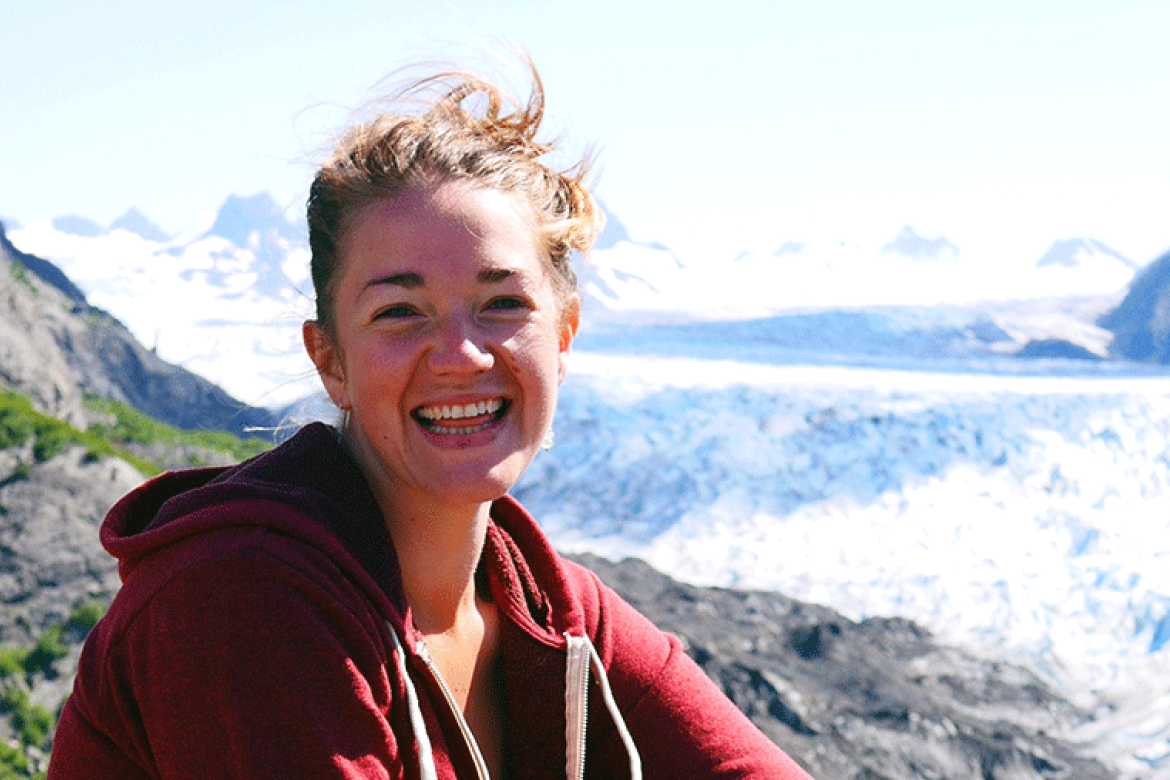Zandra Raven Davis ’17

Name: Zandra Raven Davis ’17, Frances Perkins scholar
Hometown: Homer, Alaska
Major: Human geography, with an emphasis on the intersections of reproductive justice and critical prison studies
Campus involvement: My junior year, I joined the crew team. Through this experience, I learned how important it is to show up to my commitments ready and eager to learn and to push myself, even on hard days. I learned what it felt like to really trust myself and my teammates. But most importantly, I became more mindful of how my actions directly affect everyone around me. These skills followed me into the classroom and into my work on and off campus. I am spending my senior year as a geography liaison and also a Community-Based Learning fellow at the Prison Birth Project in Holyoke. Being a CBL fellow has been very enriching because it allows me to connect my academic studies with community organizing and action.
Proudest accomplishment at MHC: As a first-generation student and a Frances Perkins scholar, I am proud to have had the opportunity to find my voice and learn how to speak from a place of courage and confidence. I also learned how to be a better and more active listener. These tools will help me in every aspect of my life, including being a better role model to my one-year-old nephew and younger siblings. The growth I experienced in my two years at Mount Holyoke (I was a transfer student) is largely due to the encouragement I received from my mentors in the Frances Perkins Program, the guidance from my advisor and the support of my professors and fellow students. They all really pushed me to be a better scholar.
Favorite course you thought you might not like: I never expected to dislike a course but I was surprised at how big an impact two of my classes had on me and on my educational trajectory. Political Ecology, taught by Catherine Corson, gave me the tools to think more critically about how politics and economics shape both international and national environmental intervention — and thus policy. This class radically shifted how I was previously taught to think about solutions for environmental issues.
The most moving course of my undergraduate time was Critical Race Theory, taught by Lucas Wilson. Not only did we read extensively about neoliberalism and discuss its impact on the intersection of race, class and gender, but we also participated in collaborative learning classes held inside a prison.
This experience had a profound effect on my understanding of the importance of listening, being heard and sharing stories in order to break the culturally constructed stigma and stereotypes that alienate us from one another. The mass incarceration of Americans has led to gross inequalities in and outside of prison and jails. As a student attending a liberal arts college, it was imperative for me to learn from those most directly affected and to discuss with them — and in that confined space — the impact that prisons, jails and detention centers have on our society.
Best takeaway from internship or research experiences: Last summer I started an internship in my home state of Alaska. My task was to network with local fisherman and farmers to find strategies that would grant better access to healthier foods for low-income families and youth. However, a few weeks into my internship, a family emergency pulled me from my work. Although I was unable to finish my internship, my brief experience was incredible. It offered me the time and resources to have a more active role in my home community and to gain a deeper understanding of it. I believe that what could have been perceived as a disruption in my summer was actually what helped me realize a path that better fits my goals. It informed how I planned my senior courses and thus my community engagement with the Prison Birth Project.
Future plans: My experience in social movements during my time at Mount Holyoke has instilled in me the passion — and offered me the tools — to be active in prison abolition and reproductive justice movements. In the fall I will go back to school to start working on becoming a speech-language pathologist. My dream is to work with the incarcerated who are experiencing speech or language obstacles.